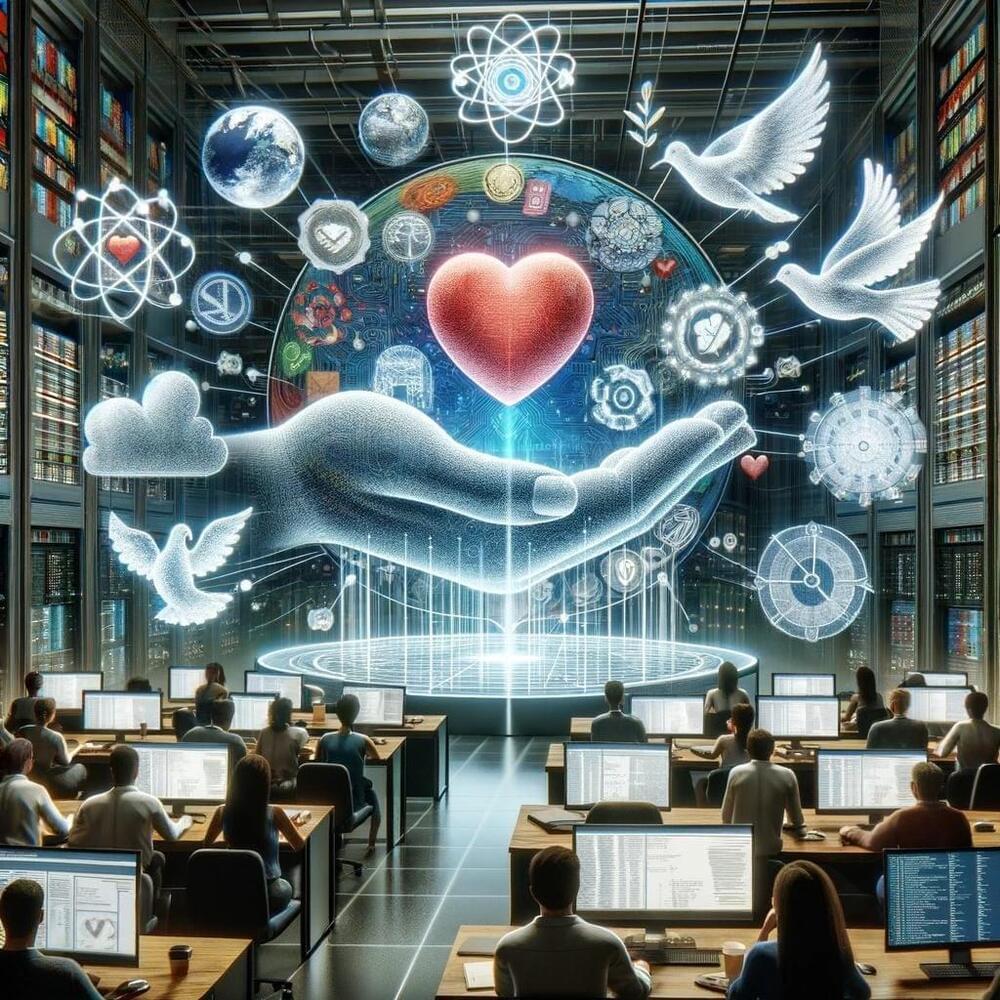Year 2015 face_with_colon_three
A brain-computer interface lets a quadriplegic woman pilot an F-35 flight simulator with the power of her mind alone.
Year 2015 face_with_colon_three
A brain-computer interface lets a quadriplegic woman pilot an F-35 flight simulator with the power of her mind alone.
Join us on Patreon! https://www.patreon.com/MichaelLustgartenPhD
Discount Links:
Epigenetic, Telomere Testing: https://trudiagnostic.com/?irclickid=U-s3Ii2r7xyIU-LSYLyQdQ6…M0&irgwc=1
Use Code: CONQUERAGING
NAD+ Quantification: https://www.jinfiniti.com/product/intracellular-nad-test/
Use Code: ConquerAging At Checkout.
Oral Microbiome: https://www.bristlehealth.com/?ref=michaellustgarten.
Enter Code: ConquerAging.
At-Home Metabolomics: https://www.iollo.com?ref=michael-lustgarten.
Use Code: CONQUERAGING At Checkout.
At-Home Blood Testing (SiPhox Health): https://getquantify.io/mlustgarten.

Technology stocks rallied Monday as an eventful weekend in the burgeoning artificial intelligence space and a hotly anticipated earnings report drove optimism, sending several notable stocks to their highest level on record.
The Nasdaq is on pace for its fourth-best month in a decade, boosted Monday by more AI optimism.

If you were offline this weekend, my colleague Will Douglas Heaven and I break down what you missed and what’s next for the AI industry.
What happened
Friday afternoon Sam Altman was summoned to a Google Meet meeting, where chief scientific officer Ilya Sutskever announced that OpenAI’s board had decided Altman had been “not consistently candid in his communications” with them, and he was fired. OpenAI president and cofounder Greg Brockman and a string of senior researchers quit soon after, and CTO Mira Murati became the interim CEO.

AGI (or Artificial General Intelligence) is something (in my view) everyone should know about and think about.


Good technologies disappear.
In the company’s cloud market study, almost all organizations say that security, reliability and disaster recovery are important considerations in their AI strategy. Also key is the need to manage and support AI workloads at scale. In the area of AI data rulings and regulation, many firms think that AI data governance requirements will force them to more comprehensively understand and track data sources, data age and other key data attributes.
“AI technologies will drive the need for new backup and data protection solutions,” said Debojyoti ‘Debo’ Dutta, vice president of engineering for AI at Nutanix. “[Many companies are] planning to add mission-critical, production-level data protection and Disaster Recovery (DR) solutions to support AI data governance. Security professionals are racing to use AI-based solutions to improve threat and anomaly detection, prevention and recovery while bad actors race to use AI-based tools to create new malicious applications, improve success rates and attack surfaces, and improve detection avoidance.”
While it’s fine to ‘invent’ gen-AI, putting it into motion evidently means thinking about its existence as a cloud workload in and of itself. With cloud computing still misunderstood in some quarters and the cloud-native epiphany not shared by every company, considering the additional strains (for want of a kinder term) that gen-AI puts on the cloud should make us think about AI as a cloud workload more directly and consider how we run it.
In an all-hands video conference call to Cruise staff on Monday afternoon, General Motors CEO Mary Barra attempted to re-energize the staff of Cruise, GM’s on-edge autonomous vehicle subsidiary, after its CEO and chief product officers both resigned following several weeks of enormous setbacks for the company.